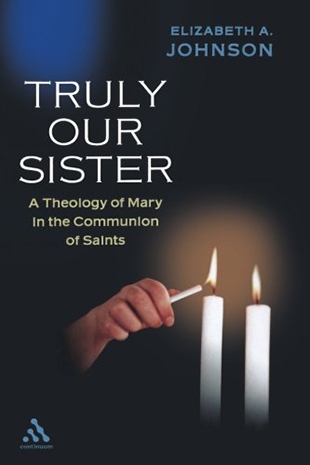"The annunciation is a faith event. Dramatically, this poor, unconventional peasant woman's free and autonomous answer opens a new chapter in the history of God with the world. 'It is Mary's faith that makes possible God's entrance into history,' writes Rosemary Radford Reuther, in the sense that henceforth God will be at home in the flesh of the world in a new way. Brazilian theologians Ivone Gebara and Maria Cara Bingemer note that annunciations keep on happening, bringing into the ordinariness of life a message of God's gracious care and desire to repair the world. Touching the root of our humanity, these messages reveal hidden possibilities within the limits of our existence, revive our hope in the midst of struggle, and summon our energies for creative action. Seen in this light the particulars of Mary's call, unique in that only one woman conceives and delivers Jesus, illuminate the fundamental dynamic of everyone's vocation through the ages. The Holy One calls all people, indeed all women, and gifts them for their own task in the ongoing history of grace. In the midst of family, work, and social life in village, suburb and city, it begins with an encounter in the solitude of the heart before God: everywoman, the voice, the call, the courageous response, in the context of the world struggling for life.
"The disclosive power of the structure of the annunciation story, along with its central elements of the Spirit's presence and the woman's response, place Miriam of Nazareth in the company of all ancestors in the faith who heard the word of God and responded with courageous love. Now like Abraham, she sets out in faith, not knowing where she is going. Now, like Sarah, she receives power to conceive by this faith, considering the One who promised to be worthy of her trust. Listening to the Spirit, rising to the immense possibilities of her call, she walks by faith in the integrity of her own person. Inspired by Spirit-Sophia, women who make their own decisions before God claim her in their circle."
